Inside Fairphone, the smartphone maker offering a better deal for the planet
'We are showing that there is a market for ethical electronics'
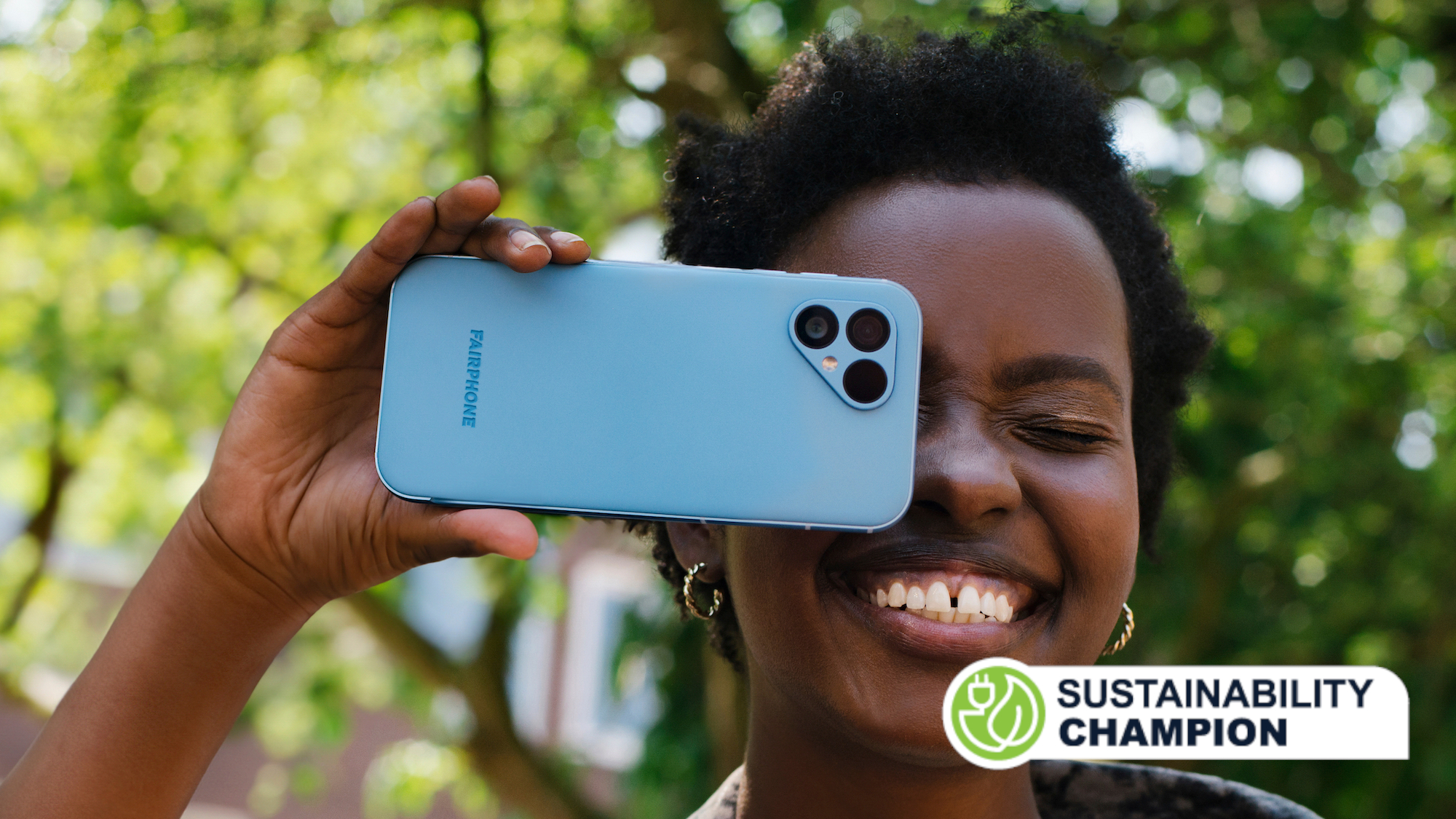
Towards the end of 2023, singer-songwriter Dua Lipa asked Apple CEO Tim Cook in an interview if he could guarantee that the cobalt in her new iPhone 15 wasn’t mined by children in the Democratic Republic of Congo (DRC).
“Yes we can,” Cook responded assuredly, evidently aware that his company – alongside the likes of Google, Microsoft and Tesla – had been accused of profiting from that exact practice just a few years prior.
The question re-platformed a growing concern among younger generations about how their consumer technology products are made, and, specifically, how the underlying components used in those products are extracted.
A company that has long sought to address these concerns is Fairphone, a Dutch electronics manufacturer whose devices (from smartphones to earbuds) are produced with as little negative ethical and environmental impact as possible.
“We are showing that there is a market for ethical electronics and a better way of doing business,” Miquel Ballester, co-founder and Head of Product Management at Fairphone, tells TechRadar.
Perhaps unsurprisingly, the company sells a fraction of the number of devices sold by Apple, Samsung and Google, but Fairphone’s admirable mission statement has seen it grow in popularity among consumers and governments in recent years.
A decades-old issue
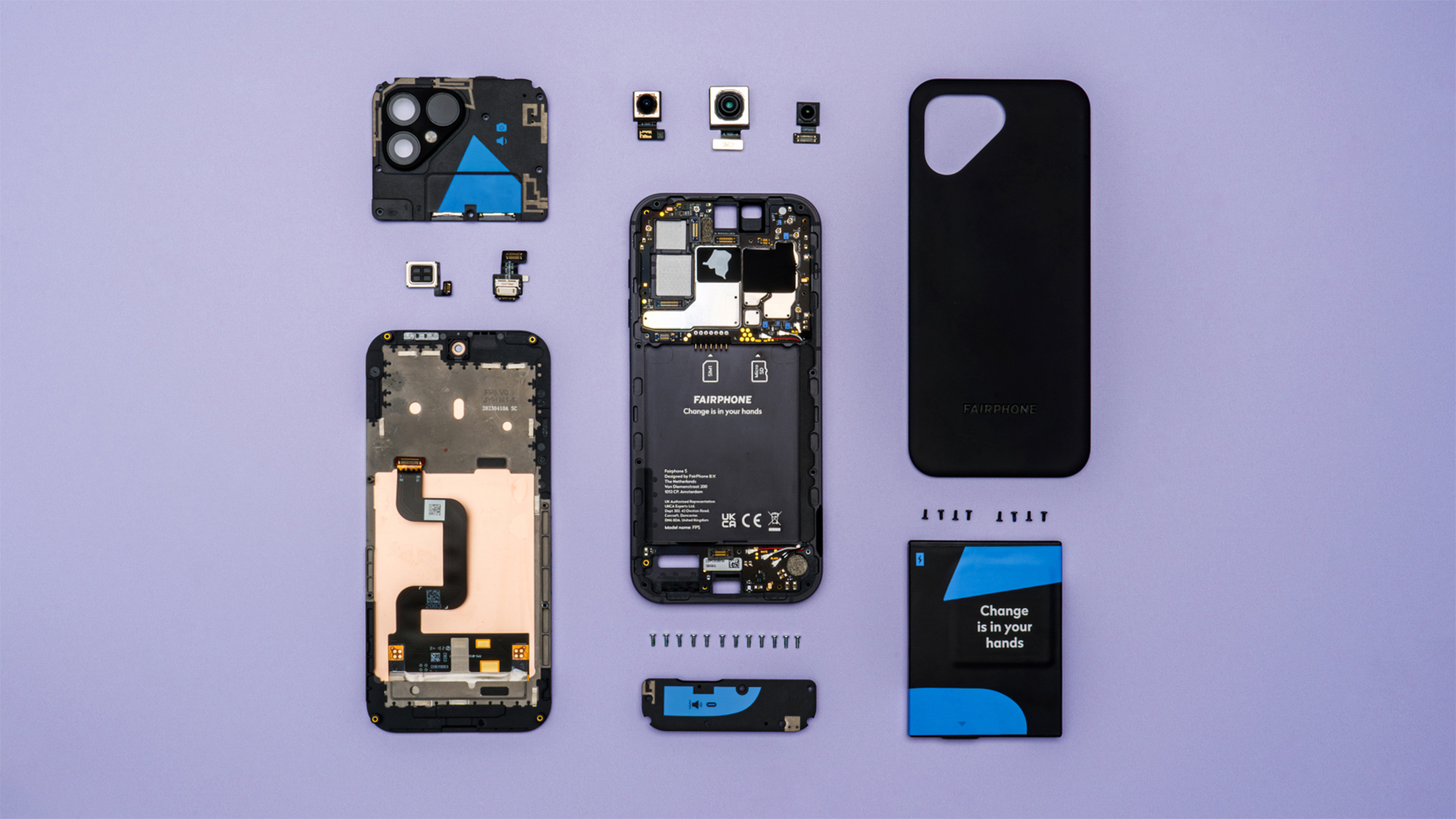
The bulk of coltan, cobalt, and lithium mining takes place in regions with threadbare environmental and labor protections. In recent months, conditions in DRC mines – which continue to fuel the mobile industry – have been identified and exposed on social media platforms as severe human-rights abuses.
Sign up for breaking news, reviews, opinion, top tech deals, and more.
Back in 2010, Foxconn, which manufactures parts for Apple, saw no less than fourteen Chinese factory workers commit suicide, with these deaths blamed on excessive working hours, insufficient wages, and oppressive conditions. Similar conditions were reported in Vietnam over a decade later, as companies battled to keep supply chains running during the Covid-19 pandemic.
A related issue is e-waste, which now represents the fastest-growing waste stream, generating 50 million metric tons a year globally. A disproportionate amount of this waste ends up in landfill and informal recycling operations in Ghana and India, where workers face toxic exposure and environments endure soil and water contamination.
“We are showing that there is a market for ethical electronics and a better way of doing business.”
Miquel Ballester
The manufacture of a single smartphone, across these vectors, produces approximately 16kg of CO2, most of which comes from extraction and processing.
Fairphone recognizes that this grim reading calls for a different approach to production.
“Phone manufacturers’ primary business models are still based on rapid turnover and planned obsolescence,” Shyam Bhanderi, a Climate Change, Development and Policy Advisor, and Administrative Officer at the British Home Office, tells TechRadar. “Purpose-built companies like Fairphone, whose entire business ethos revolves around sustainability and fair trade, from design to end-of-life, [provide significant contrast to this approach].”
Fairphone’s mission has been to set an example in the mobile tech industry by proving that a fairer business model is possible. “We are seeing that more each year,” Fairphone’s Ballester says. “When we started, supply chain sustainability and longevity weren’t even considered in the industry.”
Is the tide turning?
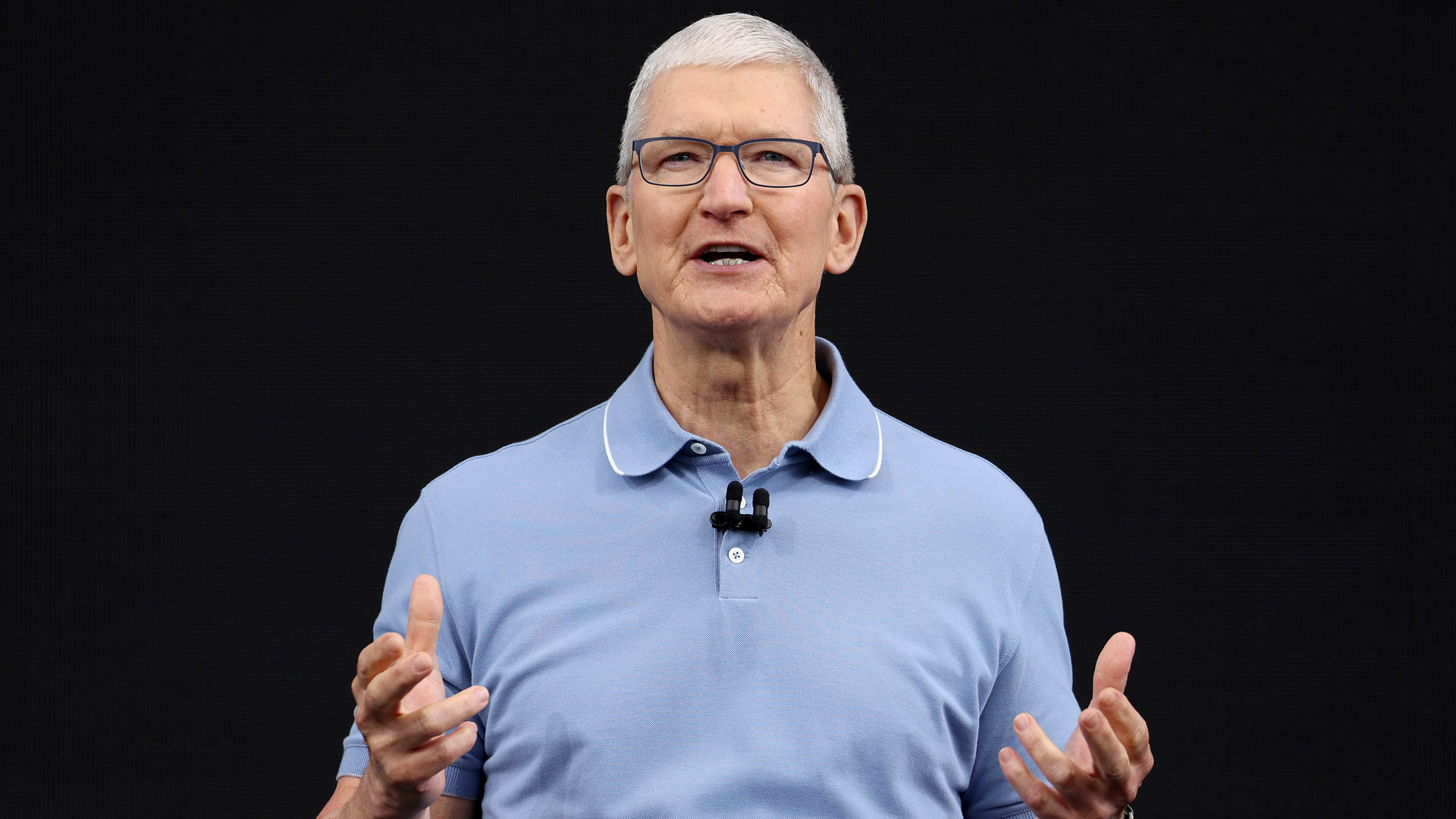
It’s hard to argue that the relatively recent rush toward sustainability clout is a ripple effect of Fairphone’s efforts – the company sold just 100,000 handsets in 2023, after all – but what is obvious is that the mobile giants are taking their environmental reputations a lot more seriously than they used to.
Apple, for instance, recently committed to using 100% recycled cobalt in its batteries by 2025, and is now powering certain operations with renewable energy. Samsung and other competitors are sharing in this approach, demonstrating a clear shift in corporate strategy.
Fairphone, of course, is ahead of the game. With its latest device, the Fairphone 5, the company managed a new high of 70% fair (i.e. responsibly mined) minerals and recycled materials, which is the result of years of concentrated effort.
"Phone manufacturers’ primary business models are still based on rapid turnover and planned obsolescence."
Shyam Bhanderi
“Fairphone has pioneered the use of conflict-free tin and tantalum, fair-trade gold, and recycled plastics,” Bhanderi tells TechRadar. “They offer modular phones designed for easy repair and upgrade, extending the device's lifecycle and reducing electronic waste.”
In 2024, Fairphone expanded its efforts into the wireless headphone market with the Fairbuds earbuds, which are built with recycled materials and net-zero e-waste, and assembled by workers paid a living wage, with agreements for sub-suppliers to improve their own conditions.
Fairbuds are also designed to last, featuring replaceable batteries and a three-year warranty, though none of these longevity features – on paper, at least (we’re still in the process of testing them) – come at the cost of quality. With titanium-coated 11mm drivers, six microphones, IP54 resistance, and 26 hours of playtime, the Fairbuds compete on performance, which is a question that follows Fairphone products wherever they’re discussed.
What’s the catch?
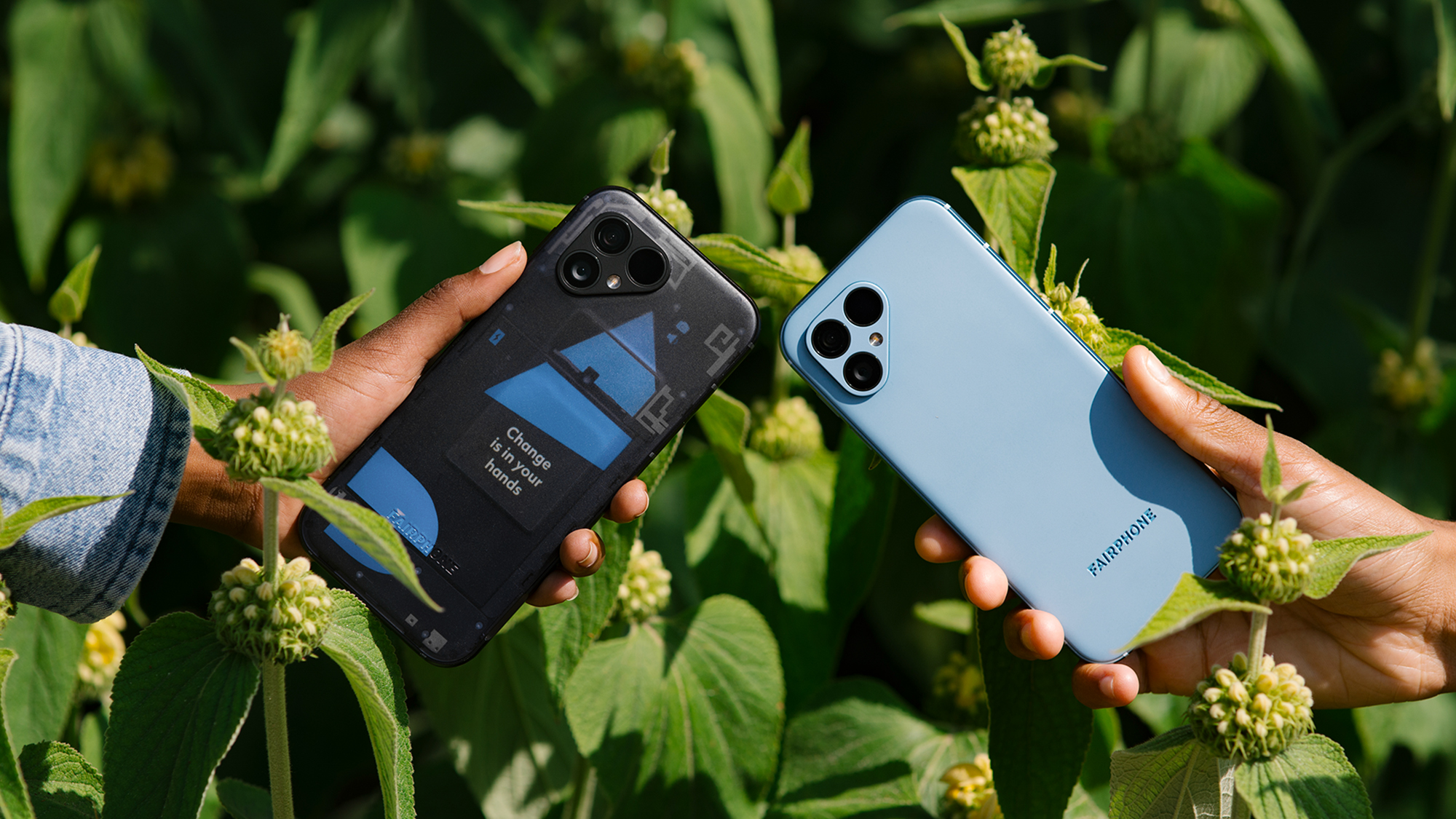
It’s long been presumed that the premium prices of Fairphone’s products subsidize the costly work of forging fairer supply chains, rather than reflecting the longevity and reparability of those products, and that customers could spend the same money with a competing phone brand – which perhaps takes a less responsible approach to sourcing – to get a better camera, processor, and other features.
If this has ever been true, it’s never been less so with the Fairphone 5. The device boasts a triple 50MP camera system, an OLED screen, a bigger battery in a slimmer profile, 8GB RAM, 256GB storage expandable to 2TB, and an IP rating enhanced to IP55. This all comes with a future rollout of backwards-compatible modular components and eight to 10 years of software support, guarding against device turnover for a decade. That’s hundreds of pounds cheaper over its lifespan than the average smartphone, which ought to last you three years.
“When it comes to tech, consumers are slowly recognizing the need to do things more sustainably, but are still focused on getting the most out of their tech,” Fairphone’s Ballester says. “In the coming years, we predict sustainability will become more important for consumers when buying electronics. We are only at the very beginning of that transition to where longevity and sustainability take center stage in product development.”
Is Fairphone's approach realistic?
If we’re to concede that Fairphone can provide a good deal for consumers while doing right by the planet, then questions remain surrounding the commercial viability of this business model. After all, if cornering the smartphone market while also being the most sustainable company was an easy balancing act, everyone would be doing it.
Fairphone is honest about its belief that “the most sustainable phone is the one you already have”, so how competitive can it really be at selling models?
"Fairphone has pioneered the use of conflict-free tin and tantalum, fair-trade gold, and recycled plastics."
Shyam Bhanderi
“It seems like a contradiction, but we want to meet our goals while surviving as a company,” Ballester explains. “Being realistic, we will likely not outsell the bigger industry players any time soon. But we need to grow to remain an inspiration to our industry peers and suppliers.”
Conclusive data on whether positive ESG (Environmental, Social and Governance) factors can contribute to market advantage is still being compiled, although a positive trend is certainly emerging. Millennial and Gen Z demographics show the strongest preference for ethical products, and have been surveyed as saying that they’re willing to pay a premium for products in alignment with their values.
“Brands like Patagonia and Tesla have successfully leveraged their sustainability credentials to build strong, loyal customer bases,” says Bhanderi. “Fairphone can tap into this trend by emphasizing its ethical and environmental commitments [...] grassroots movements and consumer advocacy groups can play a pivotal role in raising awareness and driving demand.”
Where can Fairphone improve?
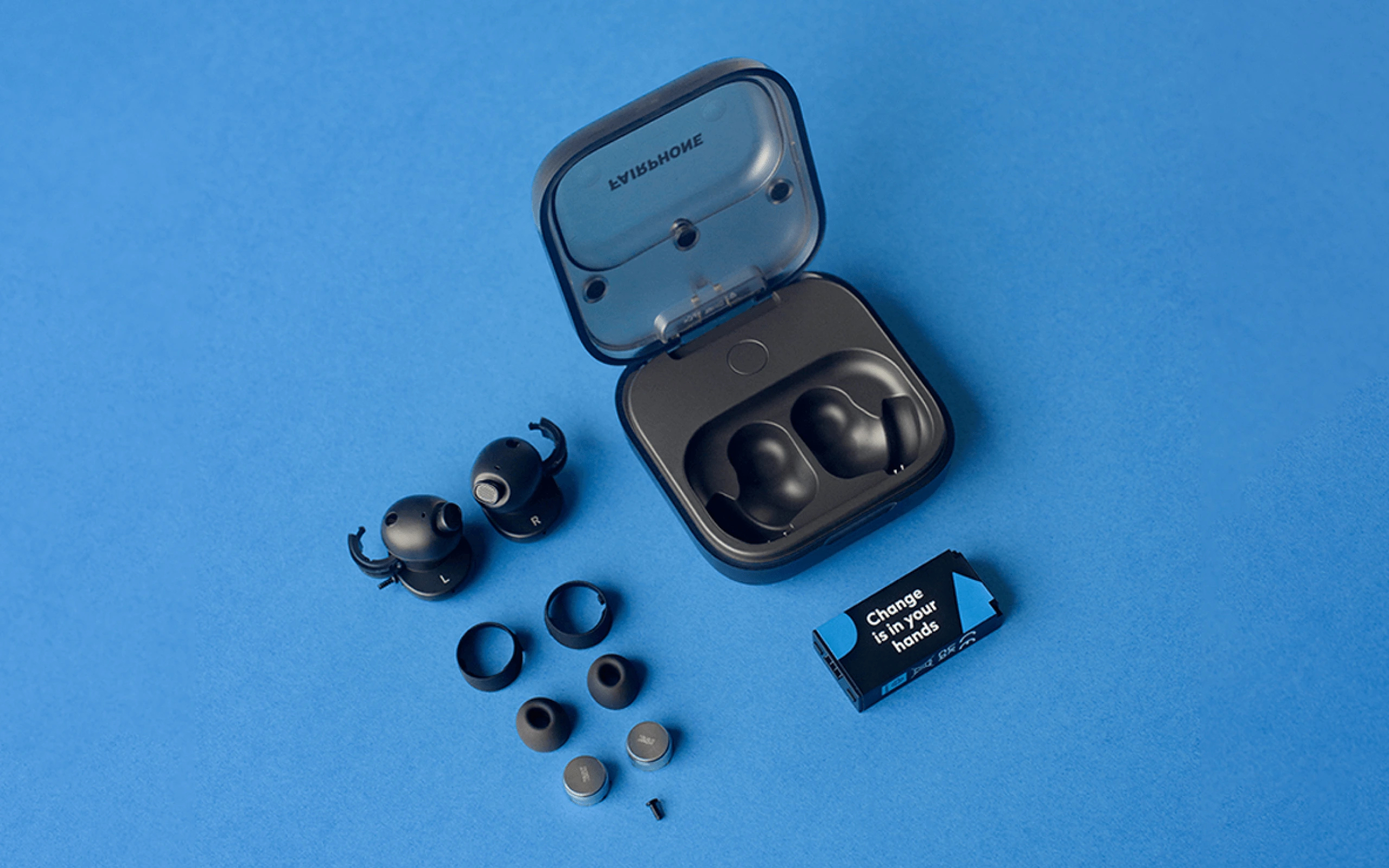
Amid a rising trend for sustainable consumership, an equal and opposite awareness surrounding the dangers of greenwashing is also growing, with accusations of the practice dogging big tech brands at their every turn. Fairphone aims to legitimize its credentials by making its actions as transparent as possible. As the company admits, more can be done here.
“Ongoing efforts are needed to ensure all tiers of [Fairphone’s] supply chain adhere to fair labor practices,” Bhanderi suggests. “Continuous audits and partnerships with local organizations can help maintain high standards.”
As specialists like Fairphone aim to raise the bar, regulators are increasingly taking aim at those that fall below it. The European Union has made moves to address electronic waste, combat human rights abuses in supply chains, and champion the right to repair.
“Global harmonization of standards can compel multinational companies to adopt more sustainable practices universally,” Bhanderi says, though he warns that “while these regulations are steps in the right direction, their effectiveness depends on robust enforcement and industry compliance.”
The bottom line
It’s clear that Fairphone has a unique selling point, whether you care more about the environment or about your own wallet, but the company remains an ongoing experiment in a global market.
“When we started, supply chain sustainability and longevity weren’t even considered in the industry,” Fairphone’s Ballester recalls again. “But now we’re seeing that the conversation has matured – and we have inspired that. We have great products and sustainability credentials, it’s now all about scaling up.”
Fairphone represents just a fraction of the wider effort to fix the mobile industry – a challenge that will require collaboration between companies, governments, special interest groups, and consumers in the years to come.
So, next time you find yourself deciding between one of the best iPhones, best Samsung phones or best Pixel phones, take a moment to consider whether a Fairphone might offer you – and the planet – a better deal.
You might also like
- Fairphone 4 review
- Best cheap phones: Best budget and mid-range phones to buy right now
- The best earbuds 2024: wireless and wired buds for all budgets

Laurence is a tech journalist of five years, specializing in deep tech with a business-reader focus. He deconstructs the economic realities behind new technologies, and is especially fascinated with green technologies, energy efficiencies and smart urbanism. Laurence has worked with Wired and Inverse, in addition to a plethora of business publications including Satellite Evolution, Connectivity Business News, and DatacenterDynamics.